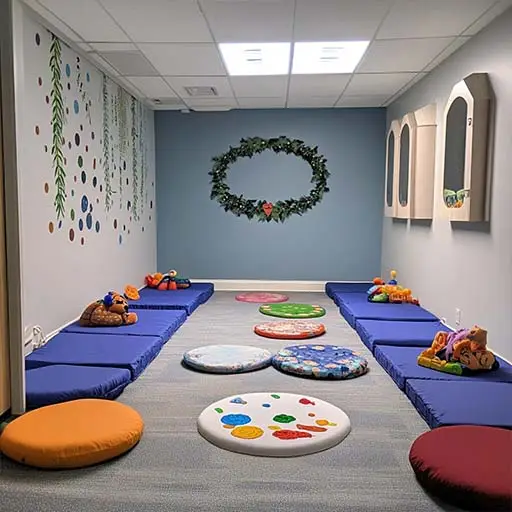Sensory Inclusive Environments
Creating inclusive school and work environments accommodating diverse learning needs, including sensory processing differences.
We offer a bespoke sensory environment audit service. This is to ensure environments are inclusive, accessible and meet sensory needs. Our qualified Occupational Therapists with postgraduate qualifications in Sensory Integration (SI Education or CLASI) and Lived Experience Consultants work in partnership with organisations such as education providers, residential homes, corporate companies and the NHS to provide recommendations on sensory needs and how the environment impacts recovery and learning needs.


Why does my setting need to audit the sensory environment?
- We can provide specific advice regarding environmental changes, equipment, approaches and strategies to support underlying health conditions.
- This will enable the education or clinic environments to be more accessible to those with sensory needs which will enhance and enable participation within activities of daily living (ADLs).
- There is increasing evidence that individuals with sensory processing challenges are accessing many environments which are not supporting their sensory needs. If someone’s sensory needs are being impacted negatively, this will impact their availability for learning and recovery (2021, S. Maslin, Designing Mind-Friendly Environments).
What does a sensory audit involve?
- A walkthrough of the environment by our specialists using audit tools which look at all the sensory systems.
- A report outlining areas that present challenges and barriers to those with sensory processing needs and ideas to overcome these.
- Advice and strategies to improve accessibility and inclusivity to those with sensory processing needs.
- Examples of adaptations and equipment which would suit individual budgets and environments.


How does this help?
- The NHS Long Term Act, 2019, states that health services need to make reasonable adjustments for autistic people to promote well-being and recovery.
- Neurodiversity conditions are recognised as long-term conditions and, as such, under the terms of the Equality Act 2010, require that reasonable adjustments be made within learning environments.
By creating an environment where all students—regardless of their learning styles or sensory processing needs—can feel supported and engaged, achieved through the integration of flexible design elements, supportive technologies, and adaptable spaces that empower every learner to thrive.
